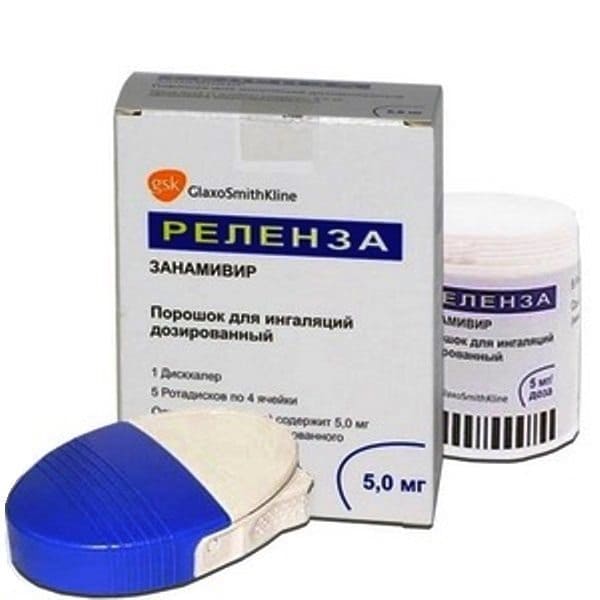You have no items in your shopping cart.

Sku:
pharmachologic effect
Antiviral drug, a strong and highly selective inhibitor of neuraminidase (a surface enzyme of the influenza virus). Viral neuraminidase provides the release of viral particles from the infected cell and can accelerate the penetration of the virus through the mucosal barrier to the surface of epithelial cells, thereby ensuring the infection of other cells in the airways. The inhibitory activity of zanamivir is shown both in vitro and in vivo and includes all 9 subtypes of neuraminidase of influenza viruses, incl. circulating and virulent for different species. Half of the inhibitory concentration (IC50) for strains of virus A and B is from 0.09 to 95.2 pM.
Replication of the influenza virus is limited to the cells of the superficial epithelium of the respiratory tract. Zanamivir acts in the extracellular space, reducing the reproduction of both types of influenza A and B virus and preventing the release of viral particles from the cells of the superficial epithelium of the respiratory tract.
The efficacy of zanamivir for inhalation has been confirmed in controlled clinical trials. The use of zanamavir as a therapy for acute infections caused by the influenza virus led to a decrease in the release of the virus (compared to placebo). The development of resistance to zanamivir in individuals with normal immunity is not recorded.
Clinical efficacy and safety
The use of zanamivir, a powder for inhalation dosed, in healthy people at risk (usually in contact with the sick), in doses used in the treatment of influenza, facilitates symptomatology and shortens the duration of the disease. A combined analysis of the results of phase III studies showed that the median time to alleviate the symptoms of the disease was reduced to 1.5 days in patients in the zanamivir group compared to patients in the placebo group (p <0.001). The number of complications decreased in the group of zanamivir 171/769 (22%) compared with placebo 208/711 (29%) and the relative risk was: 0.77; (95% CI: 0.65-0.92, p = 0.004).
The use of antibiotics for the treatment of complications after influenza also decreased from 136/711 (19%) in the placebo group to 110/769 (14%) in the zanamivir group (relative risk: 0.76; 95% CI: 0.60-0.95; p = 0.021) .
The optimal efficacy of zanamivir was shown in the case of starting treatment as soon as possible after the appearance of the first symptoms of the disease. It has been shown that zanamivir is also effective as a means of preventing influenza in children older than 5 years and in adults. The percentage of effective protection is 67-79% compared with placebo and 56-61% compared to active control.
Indications
- Treatment of infection caused by the influenza A and B virus in children older than 5 years and adults;
- Prevention of infection caused by the influenza virus type A and B, in children older than 5 years and adults.